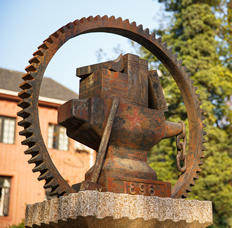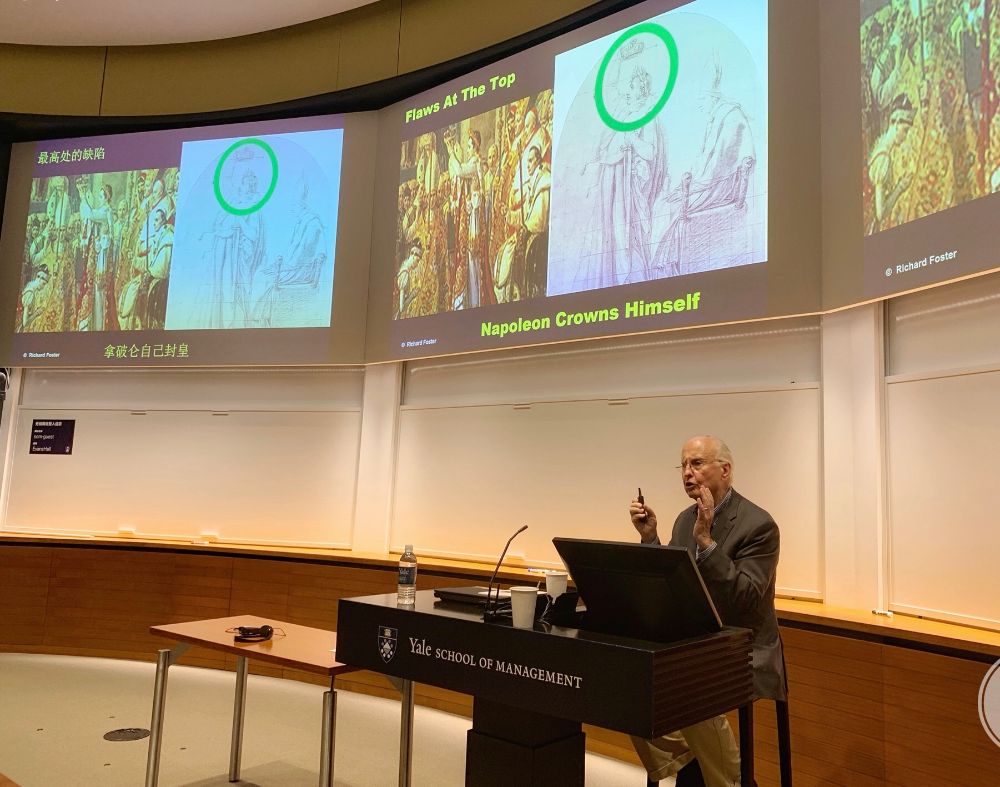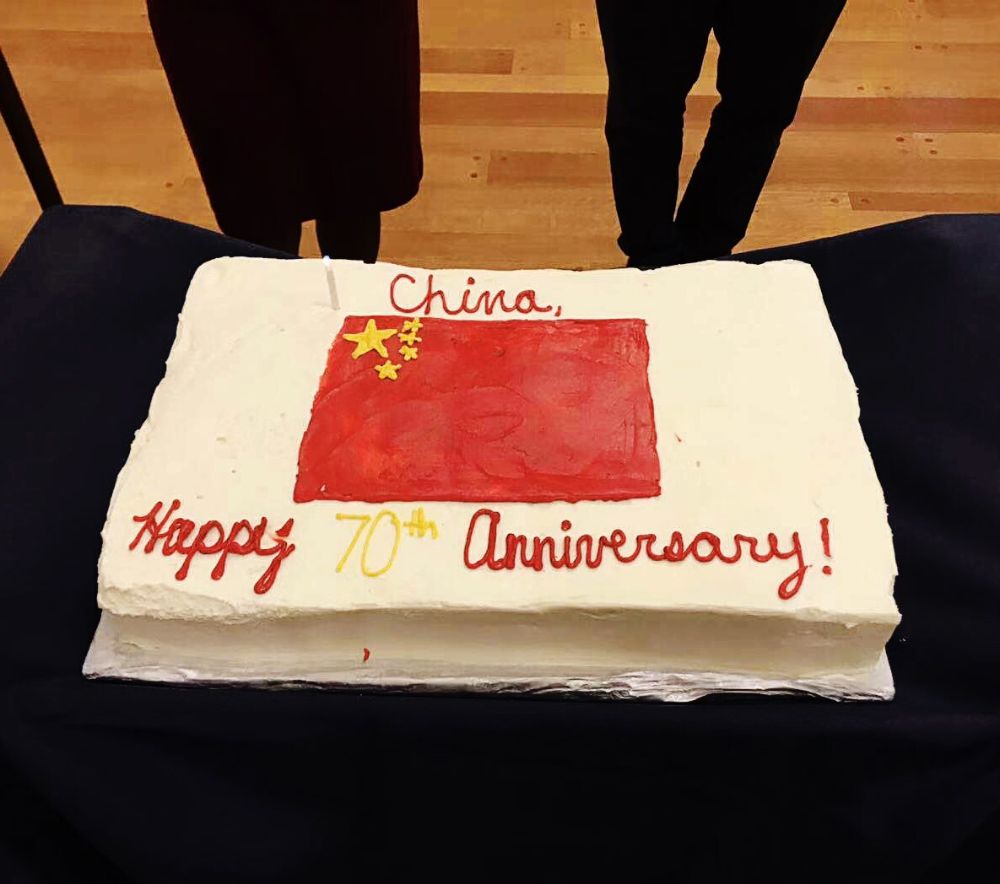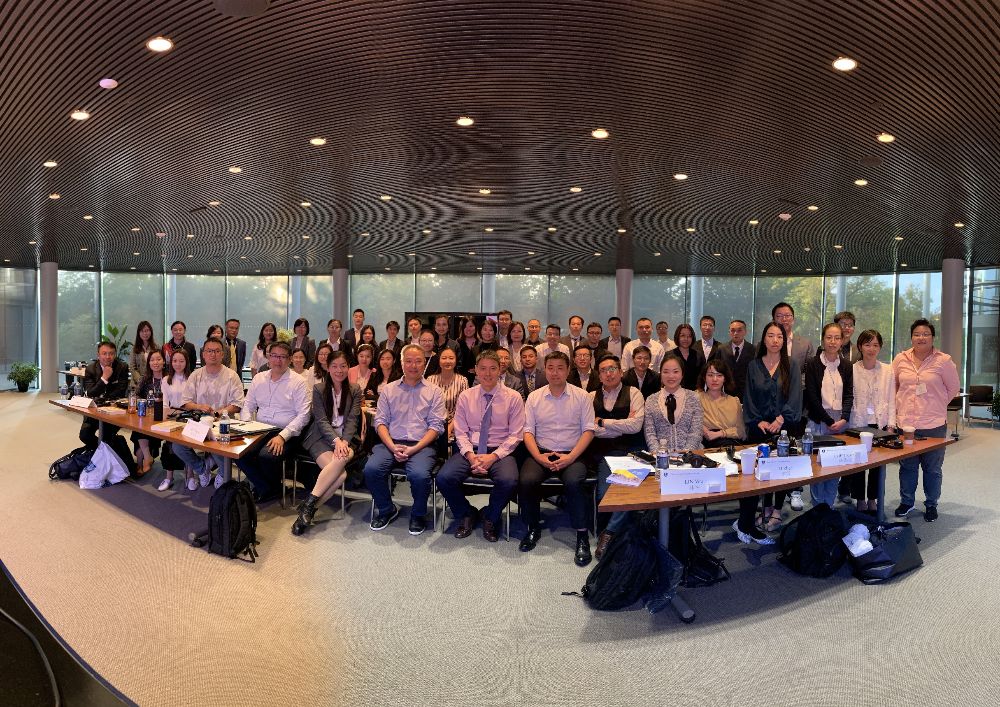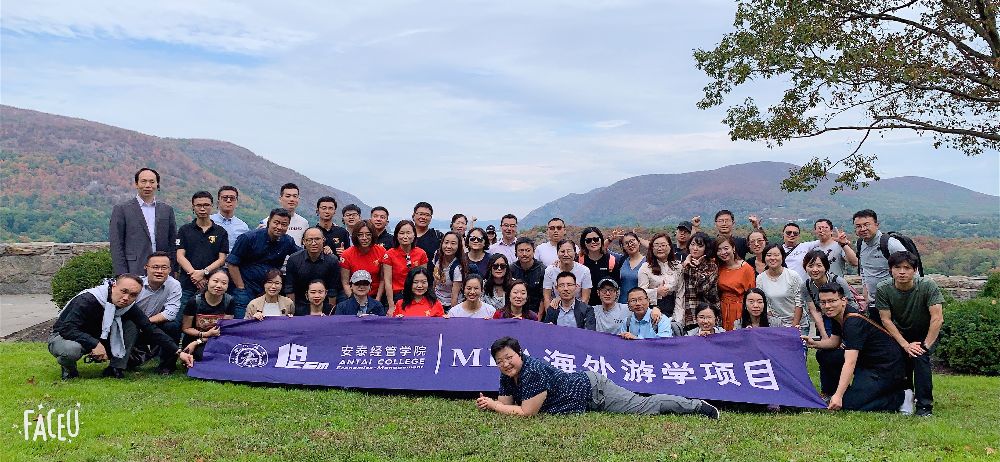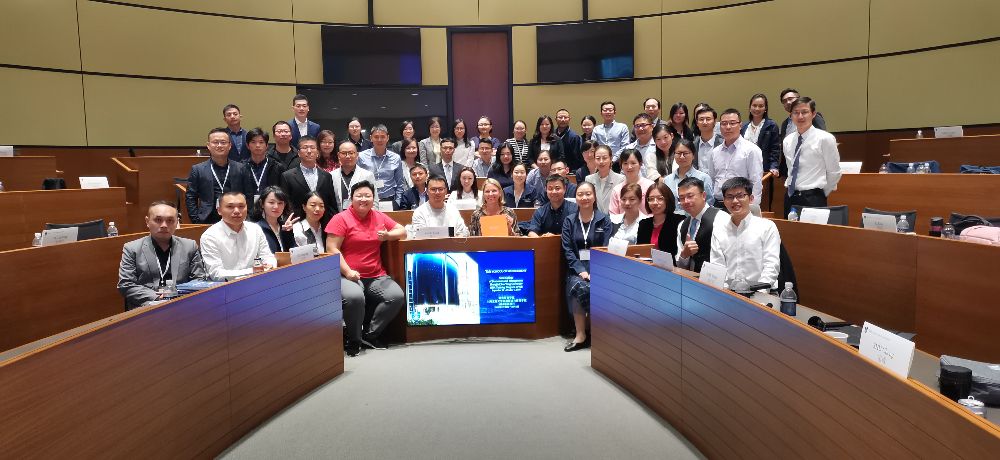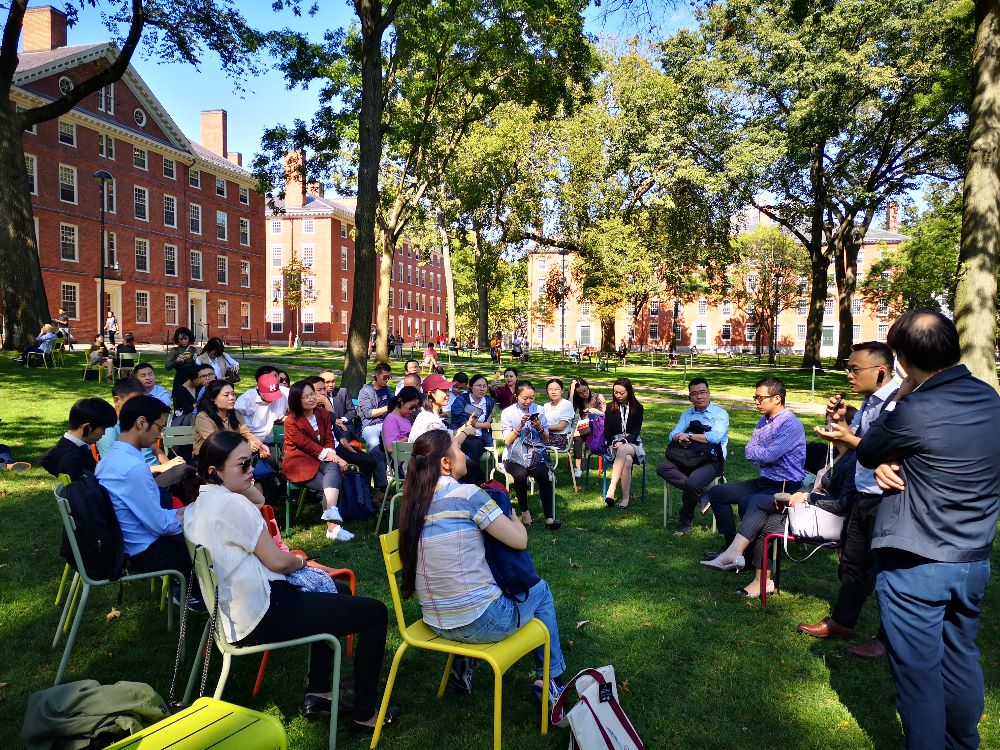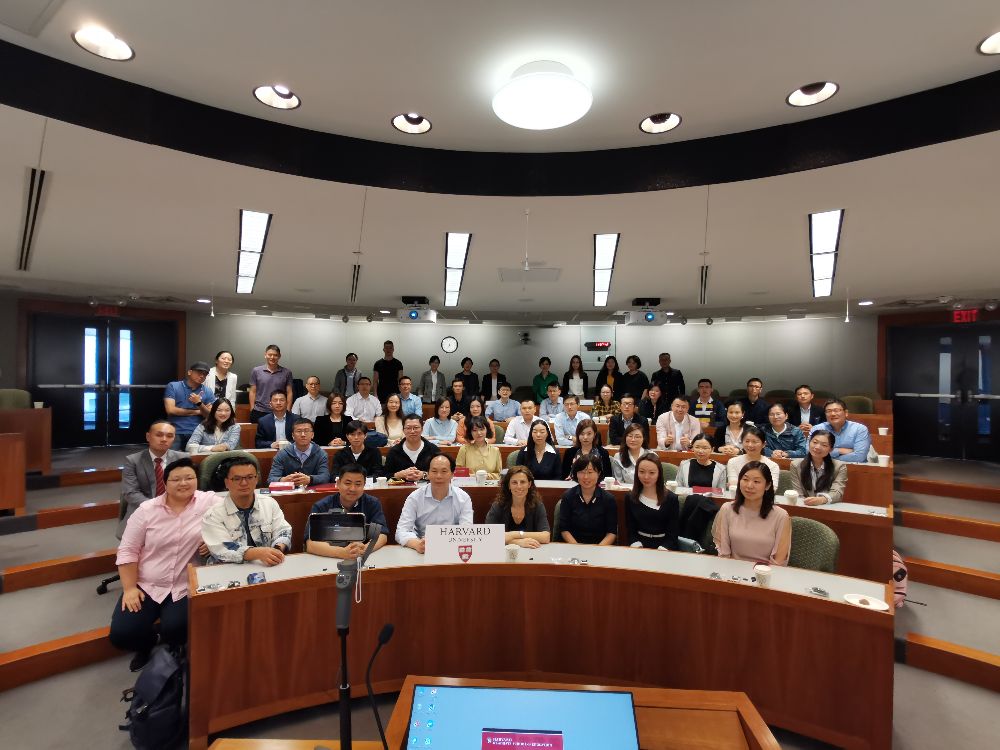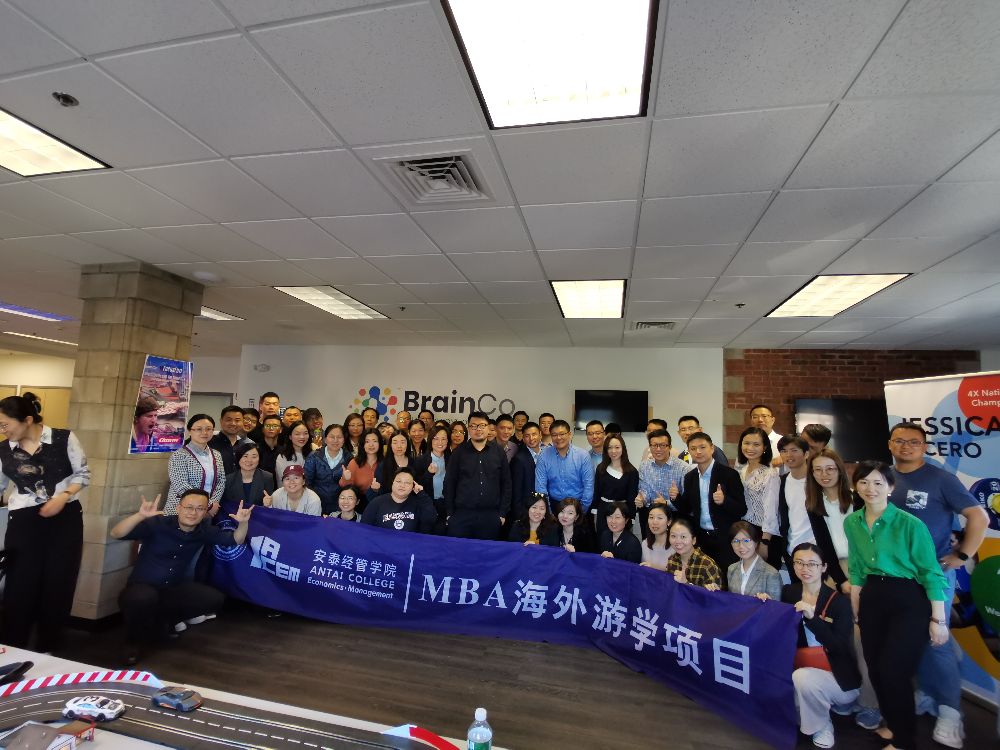The Commander Stands for the Virtues of Wisdom, Sincerity, Benevolence, Courage and Strictness-- A Leadership Study Tour of ACEM MBA 2019 in East US
Publisher : MBA Office Oct.14,2019
These are beautiful autumn days. From September 26 to October 5, 2019, a 54-member East US study tour group from the MBA program of ACEM SJTU, led by Assistant Professor Xu Yongguo and teachers Chen Yingru and Wang Lishan from the MBA Center, experienced an exciting leadership study tour with visits to world famous universities including Harvard, Yale and West Point.
Chinese and Western cultures communicate and collide to generate many new sparks of thought. In this study tour, two of the lecturing professors both mentioned Sun Tsu. They offered a comprehensive interpretation of The Art of War in terms of human resources and leadership from a new perspective and combined actual cases of war with theoretical models in different ways. This tour to East US is really rewarding. As Sun Tsu said, the Commander stands for the virtues of wisdom, sincerity, benevolence, courage and strictness. It can also be used as the annotation for the leadership of this study tour.
Harvard: Inclusiveness, the Wisdom of the Commander
The first stop is the world-famous Harvard University. It is an Ivy League school and the oldest institution of higher learning in the US. It is located in Cambridge, Boston, Massachusetts, and has a unique charm. The campus is a perfect combination of classic and modern elements, and fully displays its profound historical and cultural foundation everywhere from the Widener Library to the simple and elegant St. Paul's Bell Tower, etc.
During the two-day visit to Harvard, the members had the opportunity to attend the classes of Prof. Francesca Gino and Prof. Ramon Casadesus-Masanell. Though different in teaching style - the former is methodical and the latter is passionate, both of their lectures were refreshing and impressive.
Prof. Gino, a tenured professor at Harvard Business School, explained the characteristics of "rebel talents" and the right way for leaders to treat and manage them with abundant cases. At the same time, she also taught how to give full play to the strength of the rebel talents, breaking the rules and inventing a better way, being oneself, and using one's strengths while helping unleashing the inner rebel in others, too. This is the very wisdom a good leader needs.
Prof. Casadesus-Masanell is one of the most popular professors in corporate strategy at Harvard Business School. He supplemented and elaborated on Porter's "five forces model" in a progressive way, and used an efficient and simple strategic tool, the value master map, to explain at length how to judge and organize corporate strategies in five steps. It is a very effective way of training strategic insight and foresight of an excellent leader.
Yale: A Pool of Elites, the Benevolence of the Commander
As the most important part of this tour, the management training courses and cultural activities in Yale University, which is also an Ivy League school, are well-arranged and extraordinary. From thoughtful group photos to the typical reception dinner, from traditional Yale student gatherings to warm tips in hotels, and from the graduation ceremony of the highest honor at the law school restaurant to the heartwarming birthday cake for motherland - all these constantly affected the tour group and generated a heartfelt "This is Yale!". Besides, the famous Whiffenpoofs of Yale and the in-class oral translation commensurate to the UN conference interpretation also left an indelible mark during the three-day visit and learning in Yale.
Dr. Richard Foster, Honorary Director of McKinsey, delivered an excellent lecture on Creative Destruction with abundant case studies and data. Philosophically, he explained the ebb and flow of changes, the meaning of historical cycle, and the way to cope with market changes via constant innovation. Erudite and versatile, Dr. Foster has made great achievements not only in economics but also in history and humanities. He has cited various classic cultural scenes in his lectures. For instance, he used the story of the Lilliput and Blefuscu in Gulliver's Travels to describe the competition between a large company and countless small companies; and he explained why companies should keep innovating with the Queen of Hearts' Law in Alice's Adventures in Wonderland: “Now, here, you see, it takes all the running you can do, to keep in the same place. If you want to get somewhere else, you must run at least twice as fast as that!" He explained profound theories in simple language, making the obscure macroeconomic theory easily understood for students without much economics background.
By way of questionnaires and case studies, Prof. Marissa King analyzed the Decision Making for Leaders (DMFL) model and helped all find the decision-making methods that best suited themselves and the room for improvement, which is practical and operational. Prof. King said that "leadership is the process of inspiring others to accomplish great causes together"; and this process required the wisdom and benevolence of the commander: the wisdom lies in the insight into the overall situation, others and oneself and the benevolence refers to the care for people and social responsibilities. At the same time, Prof. King also mentioned that four elements including quality, implementation, cost (time) and cultivation must be considered for effective decision-making. This provides practical directions and standards for the improvement of management skills in the future.
In the following courses, Prof. James Levinsohn and Prof. Stephen Roach analyzed the various influences of the China-US trade war from different perspectives and the perception of the academic circle, covering both the international macro situation and the national conditions of the two countries, to help everyone get a better understanding of the causes, background and potential trend of the China-US trade war. To make a decision, an outstanding leader must consider not only business interests but also national welfare and people's livelihood.
Finally, Prof. K. Sudhir and Prof. Jiwoong Shin in Yale delivered exciting courses on big data to the tour group from the perspectives of evidence-based management and customer relationship management strategies respectively. Prof. Sudhir shared how big data were used to analyze and guide the industry and obtain feasible market insights with a wealth of case studies. And Prof. Shin illustrated how to use big data "to identify angels and devil from your customer base and do something special for them". Both of them stated that data was cold and humans were alive; and only from the perspective of human needs and caring of people can we get the most out of data analysis. This is also another embodiment of the kindness of managers.
With different styles and backgrounds, the six professors of management training courses at Yale University are all elites in their own fields and have given engaging lessons with their own characteristics and systems.
West Point: Duty and Honor, the Strictness of the Commander
We had some misconceptions about West Point before this visit:
We thought that West Point was a military school that trained obedient and disciplined soldiers. But in fact it is more of an institution for leadership and organizational ability training that emphasizes self-responsibility and national pride. It is evidenced by its school motto, namely, "Duty, Honor, Country".
We thought that West Point was particular about "it is a soldier’s bound duty to take orders". Rigorous though it is, it also attached great importance to the cultivation of character and personality as clearly seen from the school culture and curriculum. It aims to develop all-around leaders. Inside its solemn church, there is a prayer post saying: "Make us to choose the harder right instead of the easier wrong, and never to be content with a half truth when the whole truth can be won". Do the right thing even when no one is watching.
At West Point, you need to learn how to take responsibility and become a role model; how to get along with your subordinates and know your soldiers; and how to ensure that everyone understands their tasks clearly and help them take on the corresponding responsibilities.
And Colonel Sean, the lecturer of West Point and Leadership, analyzed what is leadership in the VUCA situation (making decisions under complex, volatile and ambiguous situations) using actual warfare cases, and explained how to become a good commander. With an experience of leading over 10,000 soldiers, Colonel Sean said that leadership is not science but art. It is an art that requires whoever wants to be a great leader to learn and ponder for a life time.
We thought that the army was managed via strict obedience of the soldiers. But Colonel Sean showed us how one can truly win leadership instead of a pure title in daily work by developing the seven characteristics of an excellent team and personal charm. Moreover, he also shared a practical leadership communication model at last to help us communicate more effectively.
The strictness of the commander means insight, control and persuasion rather than deterrence. This is the inspiration West Point offers in terms of business leadership.
Exploration and Visit: Colorful, Novel and Interesting
In addition to the brilliant management courses, a variety of cultural activities and visits were also arranged in this tour.
The tour group visited BrainCo in Boston and gained the latest cutting-edge technology and application information in the field of brain computer interface. The group members were deeply impressed by this outstanding Chinese high-tech company whose creation of widely available high-quality scientific equipment has offered comfort to patients and users.
The group visited the Amazon Logistics Center in New York. There, they learned how the well-known robot Kiva contributed to efficient sorting and how machine recognition at various links was used to ensure the accuracy and efficiency of goods delivery. In addition, they were touched by Amazon’s caring for people, such as regular noise detection, systematic skills training, and procedures and equipment for the reduction of operational errors caused by human thinking, which have got people to ponder.
At NBC, the tour group visited the live broadcast rooms and backstage of major hit programs, and had the opportunity to become a guest to conduct thought-provoking talks with this established media. All were deeply impressed.
Other events included visits to the MIT campus and the guided tour in Freedom Trail in Boston and Wall Street in Manhattan. These are helpful for members to comprehensively understand the American customs and culture from the side and meet future challenges with a broader viewpoint.
Conclusion: Knowledge Has No Limits; and the Learner Should Remember His Root.
The study tour to the East US has coincided with the 70th anniversary of the PRC. On the day of the military parade, overseas students gathered and many shed tears when they sang the national anthem together. In foreign countries, one can better understand what motherland stands for and what learning without boundaries means.
There are numerous excellent Chinese professors and hard-working Chinese students, but there is still a lot of room for improvement: we can read more books, broaden our horizon and become more open-minded.
The Commander stands for the virtues of wisdom, sincerity, benevolence, courage and strictness. Grow into a great manager. There are more one can do for himself, the society and the country.
"With men as a mirror, one can see whether he is right or wrong". It tells the very significance of the study tour.


